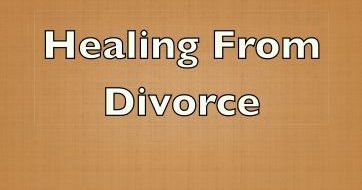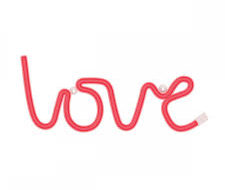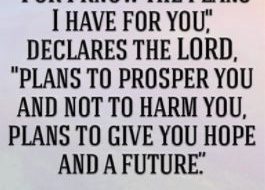Tag Archives: righteousness
Are you ready for a new season in your life?
Are you ready for a new season in your life?
Sabbath Issues and Love
Sabbath Issues and Love
John 2:6-10 Children reading the bible
John 2:6-10 Children reading the bible
Defining Unconditional Love
Defining Unconditional Love
What Submission Means According to the Bible
What Submission Means According to the Bible
How To Reach Christians with The Torah Of Yahweh
How To Reach Christians with The Torah Of Yahweh
Leviticus 4
Leviticus 4
Procedures for the Sin Offering
1 Then the Lord said to Moses, 2 “Give the following instructions to the people of Israel. This is how you are to deal with those who sin unintentionally by doing anything that violates one of the Lord’s commands.
3 “If the high priest[a] sins, bringing guilt upon the entire community, he must give a sin offering for the sin he has committed. He must present to the Lord a young bull with no defects. 4 He must bring the bull to the Lord at the entrance of the Tabernacle,[b] lay his hand on the bull’s head, and slaughter it before the Lord. 5 The high priest will then take some of the bull’s blood into the Tabernacle, 6 dip his finger in the blood, and sprinkle it seven times before the Lord in front of the inner curtain of the sanctuary. 7 The priest will then put some of the blood on the horns of the altar for fragrant incense that stands in the Lord’s presence inside the Tabernacle. He will pour out the rest of the bull’s blood at the base of the altar for burnt offerings at the entrance of the Tabernacle. 8 Then the priest must remove all the fat of the bull to be offered as a sin offering. This includes all the fat around the internal organs,9 the two kidneys and the fat around them near the loins, and the long lobe of the liver. He must remove these along with the kidneys, 10 just as he does with cattle offered as a peace offering, and burn them on the altar of burnt offerings. 11 But he must take whatever is left of the bull—its hide, meat, head, legs, internal organs, and dung— 12 and carry it away to a place outside the camp that is ceremonially clean, the place where the ashes are dumped. There, on the ash heap, he will burn it on a wood fire.
13 “If the entire Israelite community sins by violating one of the Lord’s commands, but the people don’t realize it, they are still guilty. 14 When they become aware of their sin, the people must bring a young bull as an offering for their sin and present it before the Tabernacle.15 The elders of the community must then lay their hands on the bull’s head and slaughter it before the Lord. 16 The high priest will then take some of the bull’s blood into the Tabernacle,17 dip his finger in the blood, and sprinkle it seven times before the Lord in front of the inner curtain. 18 He will then put some of the blood on the horns of the altar for fragrant incense that stands in the Lord’s presence inside the Tabernacle. He will pour out the rest of the blood at the base of the altar for burnt offerings at the entrance of the Tabernacle. 19 Then the priest must remove all the animal’s fat and burn it on the altar, 20 just as he does with the bull offered as a sin offering for the high priest. Through this process, the priest will purify the people, making them right with the Lord,[c] and they will be forgiven. 21 Then the priest must take what is left of the bull and carry it outside the camp and burn it there, just as is done with the sin offering for the high priest. This offering is for the sin of the entire congregation of Israel.
22 “If one of Israel’s leaders sins by violating one of the commands of the Lord his God but doesn’t realize it, he is still guilty. 23 When he becomes aware of his sin, he must bring as his offering a male goat with no defects. 24 He must lay his hand on the goat’s head and slaughter it at the place where burnt offerings are slaughtered before the Lord. This is an offering for his sin. 25 Then the priest will dip his finger in the blood of the sin offering and put it on the horns of the altar for burnt offerings. He will pour out the rest of the blood at the base of the altar. 26 Then he must burn all the goat’s fat on the altar, just as he does with the peace offering. Through this process, the priest will purify the leader from his sin, making him right with the Lord, and he will be forgiven.
27 “If any of the common people sin by violating one of the Lord’s commands, but they don’t realize it, they are still guilty. 28 When they become aware of their sin, they must bring as an offering for their sin a female goat with no defects. 29 They must lay a hand on the head of the sin offering and slaughter it at the place where burnt offerings are slaughtered. 30 Then the priest will dip his finger in the blood and put it on the horns of the altar for burnt offerings. He will pour out the rest of the blood at the base of the altar. 31 Then he must remove all the goat’s fat, just as he does with the fat of the peace offering. He will burn the fat on the altar, and it will be a pleasing aroma to the Lord. Through this process, the priest will purify the people, making them right with the Lord, and they will be forgiven.
32 “If the people bring a sheep as their sin offering, it must be a female with no defects.33 They must lay a hand on the head of the sin offering and slaughter it at the place where burnt offerings are slaughtered. 34 Then the priest will dip his finger in the blood of the sin offering and put it on the horns of the altar for burnt offerings. He will pour out the rest of the blood at the base of the altar. 35 Then he must remove all the sheep’s fat, just as he does with the fat of a sheep presented as a peace offering. He will burn the fat on the altar on top of the special gifts presented to the Lord. Through this process, the priest will purify the people from their sin, making them right with the Lord, and they will be forgiven.










